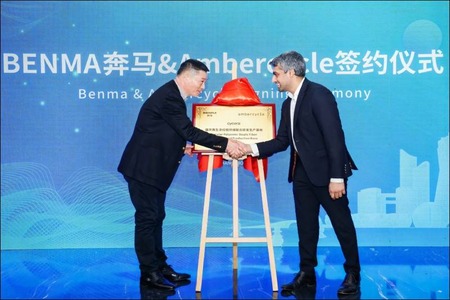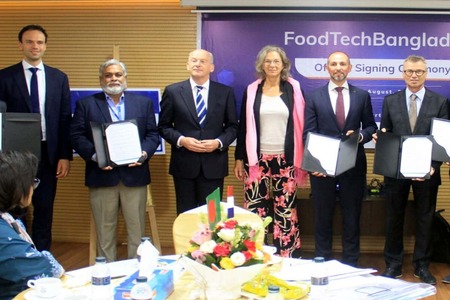
IIT Delhi researchers develop fabric that absorbs air pollutants
YarnsandFibers News Bureau 2021-08-31 14:16:09 – IndiaResearchers at the Indian Institute of Technology-Delhi (IIT Delhi) have created a modified cotton fabric that can absorb hazardous pollutants in the air.
The Zeolite Imidazolate Framework (ZIF)-modified functionalized textiles ZIF-8@CM Cotton and ZIF-67@CM Cotton absorb large amounts of organic air pollutants including benzene, aniline, and styrene from the ambient air.
According to the research team, air pollution caused by growing levels of particulate matter, nitrous oxides, sulfur oxides, carbon oxides, and other harmful volatile organic compounds (VOCs), is a serious issue.
Long-term exposure to merely a few parts per million of these chemicals can harm one's health, causing asthma, eye and throat irritations, and other ailments.
Ashwini Agrawal of IIT Delhi's Textile and Fibre Engineering Department said that n the study, they have shown that how ZIF MOFs (ZIF-8 and ZIF-67) can be used to functionalize cotton fabric in a rapid, facile, eco-friendly, and scalable way. The ZIF functionalized fabrics have a lot of promise for use as protective clothing and for reducing indoor air pollution. These textiles might be used as upholstery to control gaseous pollutants that aren't filtered out by filter media. In particular, these can be utilized in tight areas like houses, offices, theatres, aircraft, and other transport vehicles.
On the weight of the fabric, the ZIF-8 functionalized fabric adsorbs a maximum of 19.89 mg/g aniline, 24.88 mg/g benzene, and 11.16 mg/g styrene.
The textiles could be easily regenerated by heating them to 120 degrees Celsius and reused for multiple cycles without losing their adsorption ability, according to the researchers.
The researchers at IIT Delhi have successfully developed a low-cost cotton fabric capable of adsorbing 400-600% more VOCs than ordinary cotton fabrics using a technique known as in-situ growth of ZIF-8 and ZIF-67 nanocrystals on carboxymethylated cotton fabric using a rapid water-based textile finishing approach.
Furthermore, these materials are durable and can endure even the worst washing conditions. They can be used over and over again, for example, in the construction of practical filters and pollution-controlling upholstery textiles.
IIT Delhi research scholar Hardeep Singh, who carried out detailed experiments to develop these fabrics, said that porous materials such as activated carbon, zeolites, and Metal-Organic Frameworks (MOFs) are capable of adsorbing VOCs from the air. Textiles with antimicrobial, biomedical, particulate matter filtering, fuel filtering, chemical warfare protection, and UV radiation absorption characteristics may be made using MOFs. The ZIFs, in particular, are better suited to Indian conditions.
Market Intelligence
Ask for free sample Report

experience
Customer Base
dedicated team
Countries Served Worldwide









